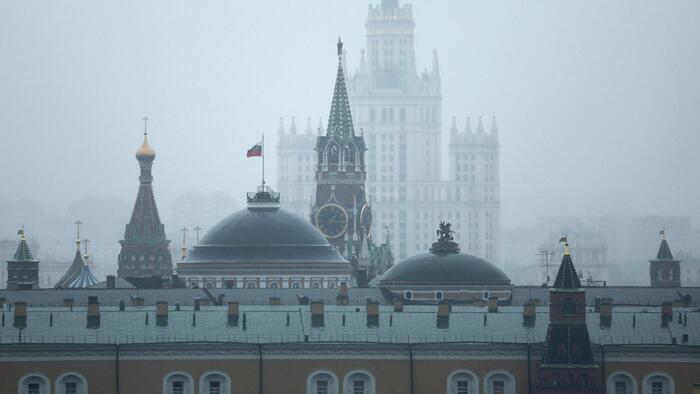As President Vladimir Putin publicly congratulated Donald Trump on his election victory, he signaled a potential thaw in US-Russia relations that had severely deteriorated during the Biden administration. Remarkably, Putin’s comments were notably warm, emphasizing Trump’s courage in the face of recent challenges, particularly an assassination attempt. At the Valdai Club in Sochi, Putin expressed his desire for improved relations with the US, highlighting Trump’s promises to negotiate an end to the ongoing conflict in Ukraine. Putin’s remarks marked a significant departure from the usual hostile rhetoric that has characterized Moscow’s interactions with Washington amidst the war, implying a willingness to engage more constructively with the incoming administration.
Putin’s statements included an eagerness to communicate directly with Trump, suggesting a profound interest in establishing dialogue with the new president, as tensions have defined previous years. The Russian leader described Trump’s intention to restore relations as deserving of attention and reiterated his openness to work with any US leader who has retained support from the American populace. This update from the Kremlin serves as a diplomatic overture, reflecting a significant shift from the nearly adversarial relationship that characterized interactions between the two nations during the conflict in Ukraine. Such considerations illustrate the Kremlin’s strategic interest in potentially recalibrating its foreign relations following Trump’s victory.
In the aftermath of Trump’s election, Ukrainian President Volodymyr Zelensky’s response highlighted the complexities entwined with a potential peace negotiation between Kyiv and Moscow. While Zelensky acknowledged the importance of communication with Trump, he also expressed skepticism about the viability of a rapid peace agreement, arguing that such a scenario could jeopardize Ukraine’s sovereignty. He emphasized that any quick resolution could result in detrimental outcomes for Ukraine, pointing to historical precedents where previous ceasefires led to significant territorial losses. The tension in Zelensky’s remarks underscores the wariness of Kyiv regarding any negotiations that might not reflect Ukraine’s interests and could undermine its ongoing struggle against Russian aggression.
Zelensky’s statements during a recent press briefing reflect a broader sentiment of discontent regarding peace negotiations that could settle for less than Ukraine’s ideals. He articulated a resolute stance against hasty agreements that, while possibly bringing about a ceasefire, would be perceived as concessions that compromise Ukraine’s independence and territorial integrity. By positioning himself against such rapid diplomatic resolutions, Zelensky stresses the importance of a sustainable and fair peace process, one that does not merely serve as a band-aid but instead addresses the root causes of the conflict and respects Ukraine’s sovereignty.
As the war continues to rage in eastern Ukraine, there have been indications that internal and external pressures are mounting on the Ukrainian government to consider a strategic exit route from the conflict. Western diplomats appear increasingly concerned about the trajectory of the conflict and have been exploring the possibility of a resolution that would conclude hostilities but may not align directly with Ukrainian interests. The delicate balancing act involves addressing the war fatigue experienced by both the international community and the Ukrainian populace, with an eye toward ensuring support does not wane, ultimately placing more responsibility on Ukraine to navigate its negotiating stance carefully.
Overall, the potential for dialogue between Trump and Putin, alongside Zelensky’s cautions about fair terms for peace, signals a complicated phase in international relationships concerning the war in Ukraine. With a new administration in the US, the interplay between Moscow’s overtures and Kyiv’s apprehensions will be critical to shaping the future dynamics of the conflict. As both sides navigate this landscape, the risk remains that hasty decisions could shape the region’s geopolitical realities for years to come, complicating existing alliances and imposing new challenges on Ukraine’s quest for security and autonomy.

